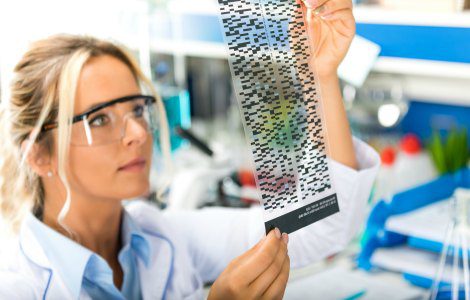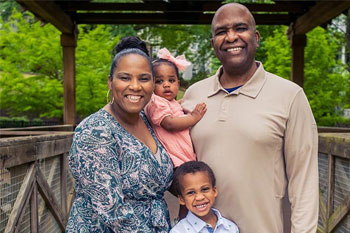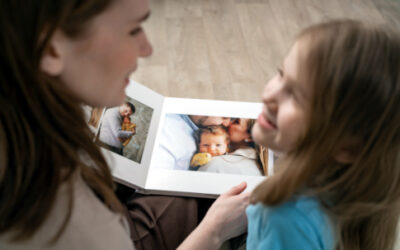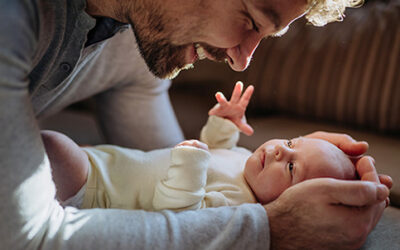 If you’re an adoptee, your family tree may be a little more complicated than the family trees of others, particularly if you were adopted before open adoptions became standard. As a result, you may have gaps in your ancestry that you’ve always been curious about and may choose to look into DNA testing for adopted adults.
If you’re an adoptee, your family tree may be a little more complicated than the family trees of others, particularly if you were adopted before open adoptions became standard. As a result, you may have gaps in your ancestry that you’ve always been curious about and may choose to look into DNA testing for adopted adults.
Whether you’re in the initial stages of searching for your birth mother from a closed adoption or want to learn more about your roots, genetic testing can reveal a lot about the past.
Nowadays, a DNA test is often unnecessary, with open adoption becoming more common. That’s because an adopted child grows up knowing their adoption story, origins, and birth parents. By remaining in contact with their birth parents, they don’t have to conduct a search for them or undergo a DNA test.
How does DNA testing for adopted adults work?
Today, DNA testing is incredibly easy. A simple saliva test with Ancestry.com or 23andMe can reveal a TON of information about an adoptee’s biological history.
People are understandably often very anxious to get their DNA results back. Unfortunately, collection facility results typically take one to two business days to receive. Home tests take quite a bit longer, up to eight weeks, if the lab is backlogged.
Genetic testing for adoptees reveals chromosomal markers that identify your family members. The DNA service you use cross-references your adopted child’s DNA against other DNA samples to find genetic links. It requires a saliva sample to determine your DNA.
The service can identify whether you are a close relative or a distant relative by your genetics. These services could help adoptees find their birth family members, especially if they didn’t have an open adoption growing up. If you don’t want to use one of the well-known DNA testing companies, you can buy a home test.
DNA Testing Services
Choosing a DNA testing service with a large database makes it easier to find birth family members in the United States and worldwide.
Also, choose an autosomal DNA test. It’s your best investment to identify relatives as far back as five to seven generations. These tests cover your maternal and paternal lines. For example, males can get a Y-DNA test. It identifies male relatives back as much as 60,000 years in their paternal line. Here are three DNA services that work best for adoptees:
1. 23andMe
23andMe offers There are two different packages for genetic testing for adopted adults at 23andMe: Ancestry for $99 or Health + Ancestry for $199.
For adoptees who have closed adoptions, 23andMe’s Health + Ancestry service provides potentially life-saving information about their health history. This information is based on the discoveries of genetic markers within their DNA.
2. FamilyTreeDNA
FamilyTreeDNA allows you can customize your DNA test to different levels of scope and follow maternal and/or paternal lines of genealogy. This is especially helpful for adoptees who may know about their birth mother’s side but know nothing about their birth father’s side. The price at FamilyTreeDNA ranges from $79 to $566.
With FamilyTreeDNA, you can connect with genetic experts and other adoptees searching for their adoption genealogy. In addition, FamilyTreeDNA can provide you with email addresses whenever it is available for all your genetic matches. So this service can put you in direct contact with your biological relatives if your results reveal connections to their DNA samples.
3. AncestryDNA
AncestryDNA is a service provided by Ancestry.com. Adopted adults can order a DNA testing kit online for $99 and have their results added to Ancestry.com’s database. Using AncestryDNA, can you link up to your biological family tree and establish your adoption genealogy. And through Ancestry.com, you may be able to find information about your birth family and build out your genetic family tree.
If you have a difficult time figuring out what your DNA test results mean, you may need to hire the services of a genetic counselor. Or, you can try asking the volunteers of DNA Detectives or the Search Squad for help. These groups specialize in showing adoptees how to use the information from their DNA tests to find their birth family.
What are other reasons adoptees get a DNA test?
People get their DNA tested for other reasons besides finding their common ancestors. Reasons why DNA testing for adopted adults may be helpful include:
- Finding out about your health: Genetic testing reveals mutations or other anomalies that put you at risk for certain diseases. Of course, even if you have a genetic mutation, it doesn’t mean you’ll get a condition, but you can be aware of your risk and be proactive in your health care.
- To help your nutrition: Your genes are affected by what you eat. So some DNA tests can pinpoint dieting lifestyles and fitness affecting your health.
- Before you have a baby: If you’re adopted, it could be a good idea to get a DNA test to check for genetic diseases you may be unaware of in your family. Sometimes information like this gets lost during adoption because the birth parents didn’t share it or didn’t know it so they could share it with the adoptive parents and child.
What are the reasons NOT to get a DNA test?
Of course, there are some negatives to getting a DNA test. Here are several to consider:
- Privacy concerns: Once you submit your data and DNA sample, you no longer own your information. However, some DNA testing companies claim ownership. Check out the privacy restrictions before you get a test.
- Could reveal old family secrets: You never know what you’ll find out when you get your DNA tested. Test results could reveal relatives in your area you didn’t know about. Or you could find out about a common disease in your family’s history.
- Awkwardness or discomfort: You may not feel comfortable connecting with strangers. So you can set your DNA results private and only share what you want with others.
- It can be costly: While there are different testing services, none are cheap. However, they occasionally run sales.
DNA Testing of Birth Parents
DNA testing is also done for people who are placing a child for adoption. Sometimes a paternity test is required so a biological father can rescind his parental rights for the adoption to proceed.
Typically, the child and the father are the only ones who get tested. However, in cases where the family is interested in full genetic results, DNA from the birth mother can be helpful. Prenatal testing is not carried out very often, but it does happen in some cases.
Paternity testing can be done in a few different ways. The first is with a CVS test where doctors take a small sample of the placenta. These tests are typically performed between 8 and 11 weeks of gestation. CVS testing is most commonly used to test for genetic conditions.
Amnio testing is the second most commonly used method of prenatal genetic screening. A sample of the amniotic fluid is taken between 13 and 20 weeks of gestation. This method is used when the paternity of the baby is in question. Once a mother passes the 20-week mark, genetic testing must wait until the child is born. It is an invasive procedure that can induce labor past 20 weeks.
Once the baby is born, there is no waiting period. Often, the doctor will take a blood sample from the umbilical cord. It’s very easy to do if they have the kit on-site. Adoption professionals or families can call in and request the kit be ready at the birth. We recommend this if you want to resolve DNA questions as quickly as possible.
Happy Endings Happen All the Time
DNA testing for adopted adults has led to some beautiful adoption reunion stories. Adoptees can use DNA testing to find a relative they were looking for or confirm a suspected relation. These tests have helped many establish relationships that are incredibly important in their identity later in life.
Editor’s Note: This article was originally published on July 24, 2019, and has since been updated.
Founder of Lifetime Adoption, adoptive mom, adoption expert, and Certified Open Adoption Practitioner (C.O.A.P).
Since 1986, adoption expert Mardie Caldwell has been dedicated to bringing couples and birth parents together in order to fulfill their dreams.
“Many years ago, I was also searching for a child to adopt. We didn’t know where or how to get started. Through research, determination, and a prayer, our dream of a family became reality. I started with a plan, a notebook, assistance from a caring adoption consultant and a lot of hard work; this was my family I was building. We had a few heartaches along the way, but the pain of not having children was worse!
Within weeks we had three different birth mothers choose us. We were overwhelmed and delighted. Many unsettling events would take place before our adoption would be finalized, many months later. Little did I know that God was training and aligning me for the adoption work I now do today. It is my goal to share with our families the methods and plans which succeed and do not succeed. I believe adoption should be affordable and can be a wonderful “pregnancy” for the adoptive couple.
I have also been on both sides of infertility with the loss of seven pregnancies and then conceiving by new technology, giving birth to a healthy daughter. I have experienced first-hand the emotional pain of infertility and believe my experience allows me to serve your needs better.
It is my hope that for you, the prospective parents, your desire for a child will be fulfilled soon.”





0 Comments